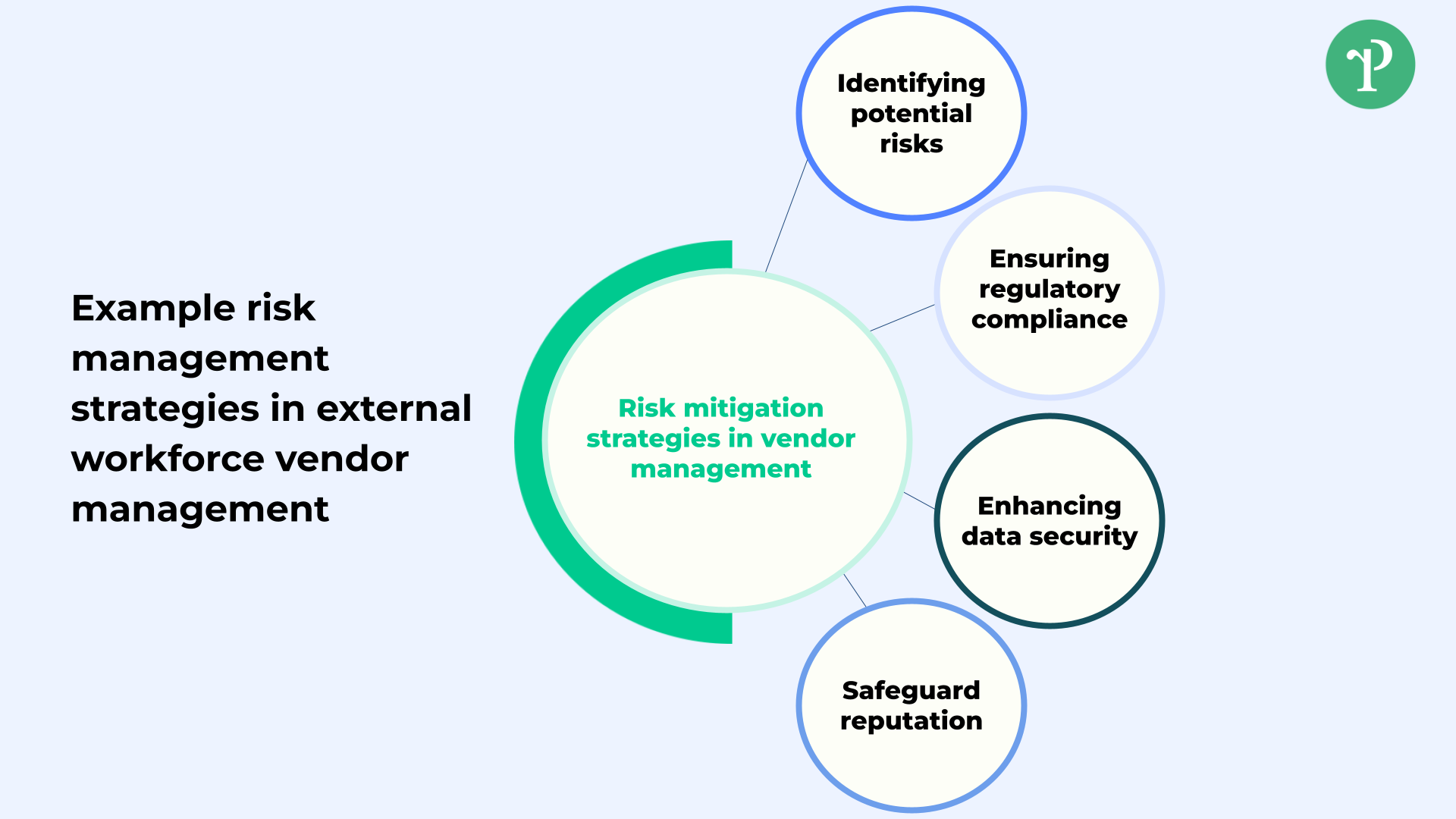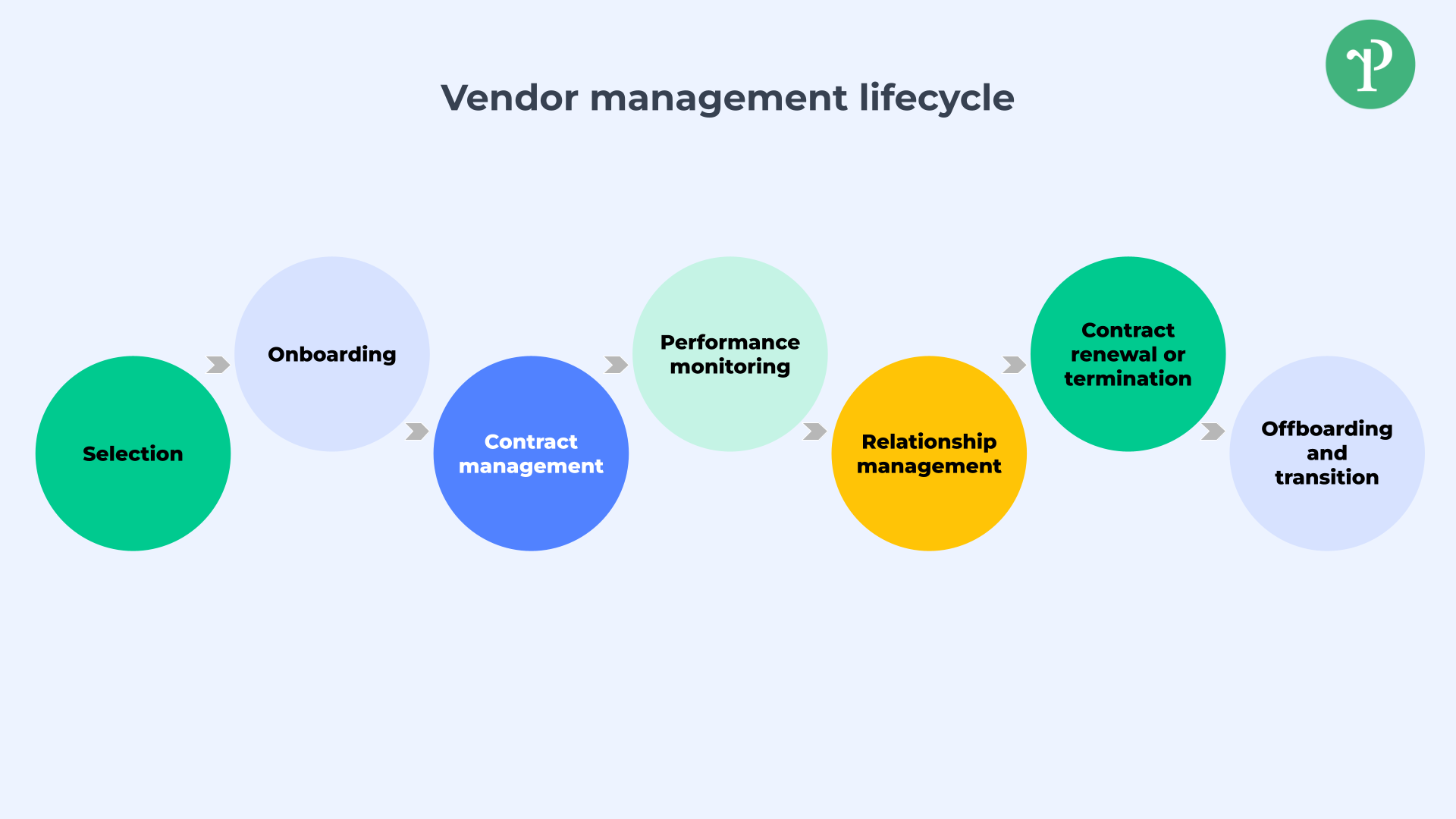Sophie is a services procurement manager at a growing tech firm. When she first joined the company, managing a handful of vendors was straightforward. But as the business expanded, so did the vendor list, each with different contract terms, performance metrics, and risk factors.
Sophie realized that her traditional spreadsheet tracking was no longer enough. The complexity was overwhelming, and she knew it was time for a more strategic vendor management approach.
As organizations, like Sophie’s grow, managing vendor relationships, ensuring cost savings, and reducing vendor-related risks, become more complex.
Implementing effective vendor management processes is not a luxury but a necessity for achieving successful vendor management.
Why effective vendor management is important
Successful partnerships with external consultants
Building strong partnerships with external consultants is a strategic component of achieving business success.
Implementing effective vendor management practices when dealing with consultants can bring about several advantages:
Build strong partnerships: Developing long-lasting, collaborative relationships with consultants enables a deep understanding of each other’s needs and expectations. This mutual understanding becomes the cornerstone for achieving goals that benefit both sides.
Ensure top-notch quality: Keeping a continuous connection with consultants ensures they consistently meet or exceed their commitments, ultimately delivering high-quality products and services.
Boost performance: Regularly reviewing consultant performance and maintaining clear lines of communication motivates consultants to surpass performance expectations, resulting in positive impacts on the bottom line.
Risk mitigation
Risk management is at the core of vendor management.

Through thorough vendor risk assessments and due diligence, companies can:
Identify potential risks: A comprehensive understanding of potential risks linked with external consultants empowers proactive strategies to minimize those risks.
Ensure regulatory compliance: Ensuring that external consultants meet legal requirements and industry standards minimizes potential legal complications.
Enhance data security: Diligent evaluation and oversight of external consultants can effectively prevent and stop data breaches and other security breaches, offering protection for sensitive information.
Safeguarding reputation: If there’s a hiccup with a consultant, it could lead to delays or other issues that harm your company’s standing. Having a strong plan to manage risks with external consultants can prevent problems that might interrupt your supply chain.
Strategic sourcing
Strategic vendor management is about adopting a deliberate approach to sourcing and handling consultants, aligning with the company’s strategic goals.
This involves:
Aligning with business goals: Choosing vendors that align with the company’s mission, values, and objectives ensures a more compatible relationship.
Optimizing costs: Strategic sourcing allows for better negotiation and vendor selection process, leading to cost savings without compromising quality.
Enhancing supply chain efficiency: A well-aligned supply chain reduces the risk of delays and enhances overall efficiency.
Promoting innovation: Engaging with vendors as partners encourages collaboration and innovation, often leading to new product development or improvements.
Vendor management best practices
To make sure your vendor relationships are strong and productive, you need to have an effective vendor management process.
Let’s look at some of the best practices for each of the stages in the vendor management lifecycle.
Vendor selection process
Choosing the right vendor, especially when dealing with external consultants, is a critical first step in the vendor management journey.
It’s essential to have a clear vendor management policy in place that dictates the selection criteria.
Some examples of policies that might be included are:
Pricing – If a company is looking for a marketing consultant, they may receive quotes ranging widely in price.
A clear policy will help them weigh the cost against the consultant’s experience, reputation, and proposed strategy, ensuring they find the best fit within their budget.
Quality – In the case of hiring an IT consultant to implement a new software system, examining previous projects, client feedback, and the proposed solution’s robustness can provide insights into the quality of their work.
A thorough assessment guarantees alignment with the company’s standards and expectations.
Reliability – When engaging a business consultant for a long-term strategy overhaul, reviewing their track record for meeting deadlines, responsiveness, and consistent performance can be vital.
Such evaluation ensures that the chosen consultant is dependable and can be a reliable partner in achieving business goals.
Vendor onboarding process
When you bring a new vendor into the mix, it’s a critical time that helps shape the whole relationship you’ll have with them.
It’s really important to have a clear onboarding process for getting started with a new vendor. A good vendor management system can make this easier by giving you the tools to check out the vendor’s background, make sure they have the right qualifications, and get all the key information you both need.
Doing this the right way helps you both know what to expect and sets the stage for working together successfully.

Contract management
Active contract management is a vital part of making your vendor relationships work smoothly. You need to actively monitor them, check in regularly and sometimes renegotiate the terms.
It’s really important to spell out a few key things in your contracts. You want to make sure everyone knows how you’re going to measure performance, what kind of service you expect, how you’ll deal with risks, and how you’re going to keep data safe.
When everyone knows exactly what’s expected right from the start, it helps avoid disagreements later on. It builds trust, and that makes working together a whole lot easier and more productive.
Staying on top of your contracts helps everyone understand their responsibilities, and it can save money by preventing misunderstandings or disagreements.
Performance monitoring
Keeping an eye on vendor performance is key to successful vendor management and a mutually beneficial relationship.
This involves continuously tracking service delivery, adherence to vendor contracts, and evaluating key performance indicators (KPIs). Leveraging vendor data and holding regular feedback sessions helps in identifying areas for improvement and encourages the vendor to maintain high standards.
Managing vendor relationships in this way also allows for prompt intervention if performance starts to slip, ensuring that vendor-related risks are managed effectively.
Relationship management
Keeping your vendor relationships strong is a must for the long haul. During this phase, communication and collaboration are your trusty companions.
Regular chats and working together help tackle issues, discuss changes, and make sure everyone’s on the same page. The key is to build a solid bond through open communication that paves the way for mutual trust and a smoother journey ahead.
Contract renewal or termination
When contracts are close to their end date, the big decision comes knocking: should you keep dancing with the same vendor or call it a day?
This step calls for a deep dive into the vendor’s performance, checking if they’ve kept their promises. It’s your chance to reflect on their impact and explore other options.
The aim is to make smart choices that align your vendor relationships with your business’s evolving needs.
Offboarding and transition
In those cases when you part ways with a vendor, it’s all about an organized farewell. The goal? Making the transition seamless, whether to a new vendor or an internal solution.
Think of it as passing the torch smoothly. This might involve transferring data, knowledge, and resources to the next player.
A well-executed offboarding ensures minimal bumps and keeps the wisdom from the previous vendor alive, so your operations flow without a hiccup.
Vendor management systems
Managing vendors is a complex task, and having the right tools is key. Vendor management software systems are vital in helping you handle vendor relationships and enhance your overall vendor management strategy.
Here’s what these systems can provide:
Tracking important details: You can keep tabs on everything that matters in vendor relationship management, ensuring that contracts and performance metrics don’t fall through the cracks.
Enhanced communication: Open and clear communication with your vendors helps everyone stay aligned and fosters better relationships.
Strategic alignment: These systems help you align your vendor strategy with your business goals, reinforcing the collaborative efforts with your vendors.
Vendor risk management: Identify and handle potential problems ahead of time, making your interactions with vendors more secure and dependable.
Time and cost efficiency: Automating many tasks saves both time and money, allowing you to focus more on building and maintaining positive vendor relationships.
Vendor management systems play a role that goes beyond simply keeping track of vendors. They ensure that your vendor management functions effectively and contributes to vendor management success.
Take the next step with the Onsiter VMS
The Onsiter VMS comes into aligns your vendor management practices with industry standards and offers automated solutions for more efficient control.
Through the Onsiter VMS, you’ll gain valuable insights into vendor performance, enabling your internal teams to make sound, profitable decisions. You can manage vendor risks with confidence, ensuring both business continuity and cost savings.
Sign up for Onsiter VMS today. It’s a practical and intelligent choice that can make a real difference in your operations.
Conclusion
Vendor management has grown into a core business function, crucial for managing vendor relationships, contracts, and risks. Success in this area demands strategic planning and the right tools, such as Onsiter VMS. Implementing best practices, maintaining a clear vendor management policy, and aligning with strategic vendors can create mutually beneficial relationships that bring significant value to your business. It’s an essential discipline in today’s business landscape.













